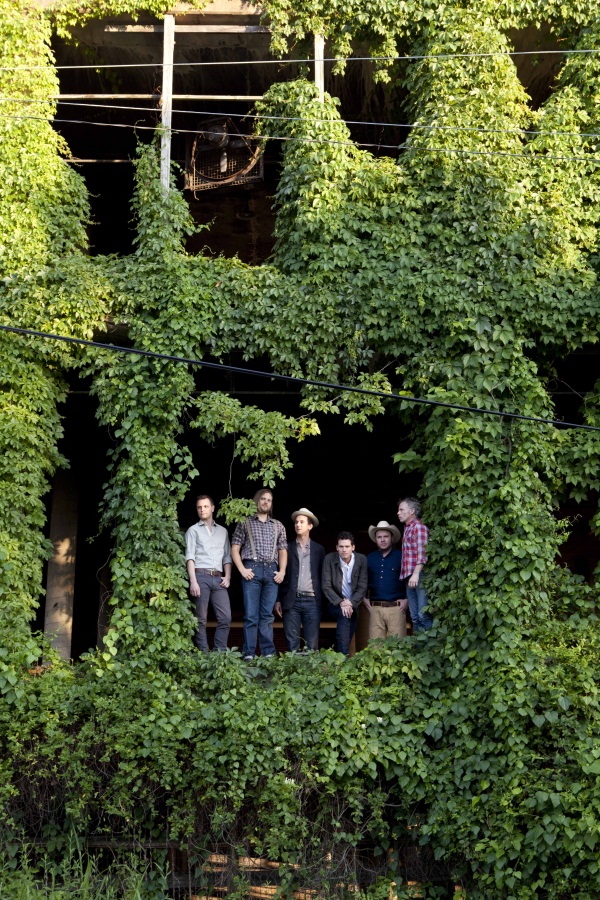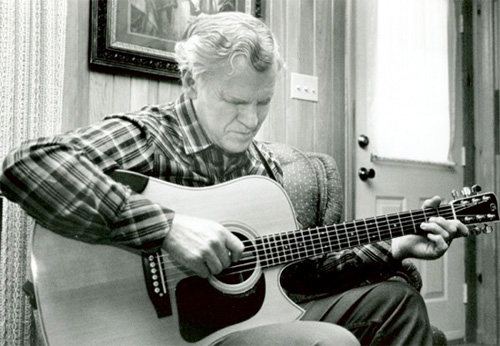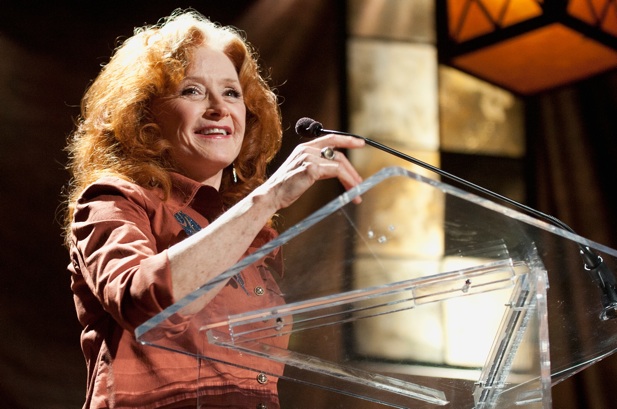Videos by American Songwriter
Things changed once they came to Nashville, got a deal with Nettwerk America and made their first nationally distributed album with Dave Rawlings, known for his more tranquil old-time duo with Gillian Welch. “For the first three or four years, even though we had great original material, we didn’t play it,” says Secor. “It wasn’t ‘til Dave Rawlings said, ‘Well, have you written anything?’ that we thought, ‘Oh, well, there’s these songs.’ And half of our first record was songs that were already in the can that we had never put in our live show.”
Slide guitarist and banjo player Gill Landry wasn’t a member of Old Crow at that point, but having busked for years with his own old-timey outfit, the Kitchen Syncopators, he can see why a band might want to stop leaning solely on old songs. “You’d find the weirdest, most obscure stuff you could on some 78 [rpm record] somewhere,” he begins. “Eventually, there is only so much of that. They’re not making new old music. Eventually, you consume the catalog of folk music. Then that’s it.”
Songs from the catalog of folk music were outnumbered by the originals on Old Crow’s 2006 album Big Iron World, and by the time the guys made 2008’s country-rock excursion Tennessee Pusher with producer Don Was and their brand new album Carry Me Back with Ted Hutt, they were writing every single track themselves.
“Ketch is such a great songwriter,” says Hutt, who did his share of translating between traditional Irish music and punk in Flogging Molly. “From this point on, I think he’s destined to write some songs even beyond the ones that he’s done. It feels, to me, like a sideways step to try to do covers.”
Even though the songs on Carry Me Back – Old Crow’s ATO Records debut – are all new, their historical lineage is often hidden in plain sight. Take “Country Gal,” a Saturday night romp co-written by Secor and guitjo player Kevin Hayes; its chorus contains teasingly brief references to Hank Williams’ classic honky-tonk come-on “Hey Good Lookin’.”
Hutt saw the old-to-new musical exchange in action when he came to Nashville and holed up in a house with Old Crow to choose songs and plan their approach to the album. “They had a 78 player and a stack of 78s,” he says. “They’re very, very informed historically on everything from the ‘20s onwards, I guess, from the beginning of things being recorded, and they can reference a lot of fiddle tunes and things. So I think what happens is they can play a fiddle tune instrumental, which is not something everybody would know, but it sort of seeps into something like ‘Bootlegger’s Boy.’”
Just to be clear, the Old Crow guys aren’t actually expecting to be carried back to some romanticized agrarian past. Nor does their material have anything in common with current country hits that boast of nonstop dirt road tailgating parties in chimerically idyllic towns. In the new songs, you hear them confronting the fact that the old rural home they never had is permanently beyond reach, that that simpler, harder, pre-mechanized way of life no longer exists – at least not in the developed world. If anything, they’re singing about seeing the double-edged sword of progress for what it is, and not settling for numbed-out, glossed-over relationships to social realities of the past and present.
“See, songs today on the radio are about getting what you want,” says Secor. “All those songs about the girl and the boy and the truck? They’re about getting what you think you want right now. Well, maybe you shouldn’t get it. I mean, maybe what you need is not that girl or that truck.”
“We Don’t Grow Tobacco” – decidedly lacking in mentions of girls and boys in trucks – is the catchiest down-home shuffle you’ll hear describing an area stripped of its livelihood and its able-bodied youth; “Half Mile Down” ratchets up the tempo to tell the story of a tiny town submerged beneath a manmade lake; the title track is a rollicking reel narrated by a young Virginian who, like his fellow soldiers, was bound to come home from the Civil War in a pine box, if he came home at all. (“Levi” is the ballad of another young guy from the same state sent off to fight and die, only, in his case, in the Middle East; songs like that and “Mississippi Saturday Night” – with its references to FEMA trailers and Wal-Mart parking lots – show the band’s comfort with placing vignettes from bygone eras alongside those of today.)
Another Old Crow hallmark is the collective voice; the band’s material isn’t individualistic, isn’t confessional and isn’t focused on the interior life. “A lot of people don’t have a voice for what they want to say,” Secor reflects. “I feel a little bit like a conduit, as a folksong writer.” That feeling has inspired such humanistic songs as “I Hear Them All” and, on the new album, “Ways Of Man” and “Ain’t It Enough,” the latter co-written by Secor, longtime singer/guitarist Willie Watson and non-band member Jason White.













Leave a Reply
Only members can comment. Become a member. Already a member? Log in.